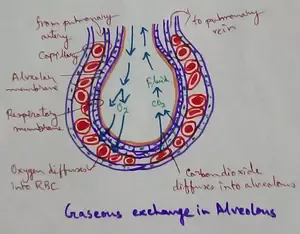Worksheet on Matter and Materials
We will solve different types of questions given in the worksheet on matter and materials. We know, matter is anything that takes up space and has weight.
I. Mark a tick (√) or cross (X) against each given statement:
(i) Liquid flows.
(ii) A solid has a definite volume and shape.
(iii) Matter is anything that has weight and takes up space.
(iv) Molecules are tightly packed in a gas.
(v) All solids dissolve in water.
II. Write true or
false of the following statement:
(i) Iron is harder than copper.
(ii) Polished wood is transparent.
(iii) Metals are good conductors of heat.
(iv) Copper is a good conductors of electricity.
(v) Potassium permanganate is soluble in water.
(vi) Solution is homogeneous.
(vii) All materials are soluble in water.
(viii) Air is soluble in water.
III. Choose the correct word to complete the following statements:
(i) Iron is _________ but _________ is soft. (plastic / hard / light)
(ii) Rubber is _________ conductor of electricity. (good / bad)
(iii) _________ allows light to pass through it. (wood / glass)
(iv) Carbon-di-oxide is _________ in water. (soluble / insoluble)
IV. Fill in the blanks:
(i) The amount of space a book takes up is called its _________.
(ii) A liquid has a definite _________ but no definite _________.
(iii) A solid changes into a liquid on _________.
(iv) In a solution of a solid in a liquid, the solid is called the _________.
(v) No more salt can dissolve in a _________ solution of salt in water.
V. Give five examples for each of the following substances that are:
(i) Brittle
(ii) Transparent
(iii) Good conductor of heat
(iv) Soluble in water
Check the answers of worksheet on matter and materials:
Answers:
I. (i) √
(ii) √
(iii) √
(iv) X
(v) X
II. (i) true
(ii) false
(iii) true
(iv) true
(v) true
(vi) true
(vii) false
(viii) true
III. (i) hard, plastic
(ii) bad
(iii) Glass
(iv) soluble
IV. (i) volume
(ii) volume, shape
(iii) heating
(iv) salute
(v) saturated
V. (i) marble, salt, alum, stone and glass
(ii) Glass-plate, air, polythene sheet, water and salt
(iii) copper, silver, gold, iron and aluminium
(iv) Sugar, salt, alum, blue vitriol and potassium-permanganate
From Worksheet on Matter and Materials to HOME PAGE
Recent Articles
-
What Is Plasma? | Blood Plasma | Proteins | Nutrients | Cholesterol
Nov 07, 25 10:29 AM
Blood is a mobile fluid which is a connective tissue and is derived from the mesoderm like cell any other connective tissue. Colour of blood is reddish and that flows inside the blood vessels by means… -
Disorders of Respiratory System | Tuberculosis | Pleurisy | Emphysema
Oct 28, 25 11:39 PM
Tuberculosis is very common disease and is caused by a type of bacteria called Mycobacterium tuberculosis. This disease causes different trouble in the respiration and infection of several parts of th… -
Regulation of Respiration | Respiratory Centres | Inspiratory Area |
Oct 14, 25 12:13 AM
Respiratory Centre is the area that controls the rate of respiration and it is observed to be located in medulla oblongata and pons. Respiratory Centre has the following will dispersed components like… -
Explain Transport of Gases | External Respiration | Tissue Respiration
Oct 09, 25 11:35 PM
In humans gaseous exchange is completed in the following ways the steps are - External Respiration or Breathing - Breathing in false taking in of Oxygen and giving out of carbon dioxide in the body. M… -
Kind and Number of Teeth | Location of Teeth in Mouth | Care of Teeth
Sep 11, 25 12:52 AM
Kind and Number of Teeth





New! Comments
Have your say about what you just read! Leave me a comment in the box below.